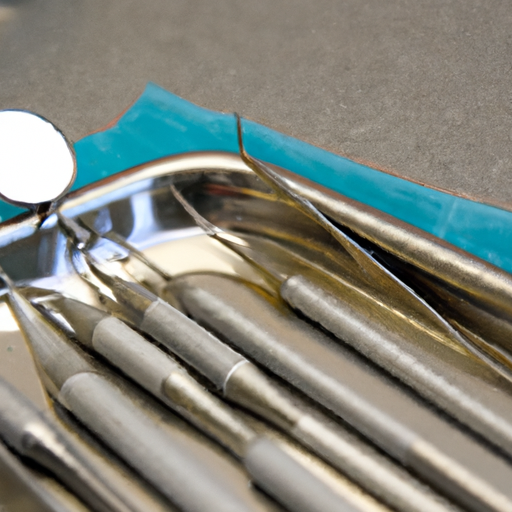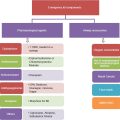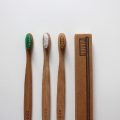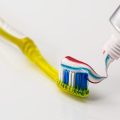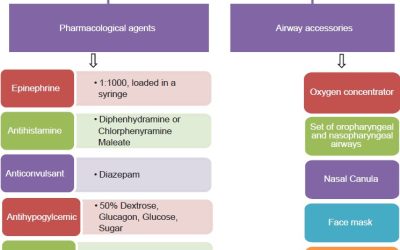You’ve probably experienced a dental emergency at some point in your life. Whether it’s a sudden toothache, a broken tooth, or a knocked-out tooth, these situations can be both painful and alarming. But the good news is, many dental emergencies can be treated on the spot by your dentist. From addressing severe toothaches to repairing fractured teeth, this article will explore the different types of dental emergencies that can be promptly treated, helping you understand what to do and where to go when the unexpected happens.
Toothaches
Toothaches can be a real pain, quite literally. They can strike at any time and make it difficult to eat, sleep, and focus on anything else. But what causes toothaches? Well, there are several factors that can contribute to this uncomfortable dental issue.
Causes of toothaches
One of the most common causes of toothaches is dental decay. When bacteria in the mouth produce acids that eat away at the tooth enamel, it can result in cavities. These cavities expose the sensitive inner layers of the tooth, causing pain and sensitivity.
Another common cause of toothaches is gum disease. When gum disease progresses, it can lead to inflammation and infection around the tooth, causing pain and discomfort. Additionally, toothaches can be caused by a cracked tooth, a dental abscess, or even sinus problems that refer pain to the teeth.
Treatment options for toothaches
When it comes to treating toothaches, it’s important to address the underlying cause. If dental decay is the culprit, a filling may be necessary to remove the decayed portion of the tooth and restore its structure. In some cases, a root canal may be needed to remove the infected pulp inside the tooth.
For toothaches caused by gum disease, a deep cleaning or scaling and root planing may be recommended to remove plaque and tartar buildup below the gumline. Antibiotics or antimicrobial mouthwashes may also be prescribed to control infection and reduce inflammation.
In cases of a cracked tooth, a dental crown may be necessary to protect the tooth and restore its functionality. If a dental abscess is causing the toothache, a root canal or extraction may be required to eliminate the infection and prevent further complications.
Overall, the treatment options for toothaches depend on the specific cause and severity of the pain. It is crucial to consult with a dentist as soon as possible to determine the best course of action and alleviate the discomfort.
Chipped or Broken Teeth
Chipping or breaking a tooth can be a distressing experience. It can happen due to various reasons, and understanding the causes can help prevent such incidents in the future.
Causes of chipped or broken teeth
One common cause of chipped or broken teeth is trauma or injury to the mouth. This can occur from accidents, falls, or contact sports. Biting down on a hard object, like ice or hard candies, can also lead to tooth chipping or fracture. Additionally, teeth weakened by decay or large fillings are more susceptible to chipping or breaking.
Treatment options for chipped or broken teeth
The treatment for chipped or broken teeth depends on the extent of the damage. In minor cases, where only a small portion of the tooth is affected, cosmetic bonding or dental veneers may be used to restore the tooth’s appearance and function.
If a larger portion of the tooth is chipped or broken, a dental crown or cap may be necessary to provide additional strength and protection. In cases where the tooth is severely damaged or broken beyond repair, an extraction might be required, followed by tooth replacement options like dental implants or bridges.
It is essential to seek dental care promptly if you chip or break a tooth. Ignoring the issue can lead to further damage or infection, which may require more extensive treatments down the line.
Loose or Knocked-Out Teeth
Losing a tooth or experiencing a loose tooth can be a distressing situation. However, understanding the causes and knowing the proper course of action can greatly improve the chances of saving the tooth.
Causes of loose or knocked-out teeth
One of the most common causes of a loose tooth is dental trauma, such as a blow to the face or a sports injury. Gum disease, which weakens the supporting structures of the teeth, can also lead to teeth becoming loose. Additionally, teeth grinding or clenching, known as bruxism, can cause tooth mobility over time.
When it comes to knocked-out teeth, it usually occurs due to an impact or blow to the mouth. This can happen during accidents, falls, or sports activities.
Treatment options for loose or knocked-out teeth
If you have a loose tooth, it’s essential to see your dentist as soon as possible. Depending on the severity of the looseness, your dentist may recommend various treatments, such as splinting the tooth to adjacent stable teeth or performing a root canal to stabilize the tooth.
In the case of a knocked-out tooth, immediate action is crucial for the highest chance of successful re-implantation. First, locate the tooth and hold it by the crown (avoid touching the root) if it’s dirty, rinse it briefly with milk or saline solution, then try to reposition it into the socket. If that’s not possible, store the tooth in a container of milk or saline solution and get to a dentist immediately. Time is of the essence, as re-implantation is most successful within the first hour after the tooth loss.
Remember, seeking professional dental care promptly is vital for the best outcome in restoring a loose or knocked-out tooth.
Lost Fillings or Crowns
Discovering you’ve lost a filling or crown can be alarming, but rest assured, there are treatment options available to address the issue effectively.
Causes of lost fillings or crowns
The primary cause of lost fillings or crowns is usually dental decay or damage to the affected tooth. Over time, fillings can weaken or loosen due to normal wear and tear, leading to their loss. Additionally, biting down on hard or sticky foods can cause a filling or crown to dislodge.
Treatment options for lost fillings or crowns
When a filling or crown is lost, it’s crucial to visit your dentist promptly. In some cases, the tooth may be sensitive or even painful without the protective filling or crown in place. Your dentist will evaluate the remaining tooth structure to determine the best course of action.
If the loss is caused by dental decay or damage, a new filling or crown may be required. The dentist will clean and prepare the tooth before placing a new filling or crown. Temporary solutions, such as dental cement or temporary fillings, may be used until a permanent restoration can be placed.
It’s important not to delay seeking dental treatment when a filling or crown is lost. Leaving the tooth exposed can lead to further decay, sensitivity, or even damage to the underlying tooth structure.
Abscesses
An abscess is a painful dental problem that requires immediate attention. Understanding the causes and treatment options for abscesses can help alleviate the pain and prevent further complications.
Causes of abscesses
Abscesses are typically caused by a bacterial infection within the tooth or gums. Dental decay, which allows bacteria to reach the inner layers of the tooth, can lead to abscess formation. Gum disease can also cause abscesses when bacteria infect the gums and surrounding tissues.
Treatment options for abscesses
Treating an abscess involves addressing the underlying infection and alleviating the associated pain. Initially, your dentist may prescribe antibiotics to control the infection and reduce inflammation. Pain relief medications may also be recommended to manage the discomfort.
To eliminate the source of the infection, a root canal procedure may be necessary. During a root canal, the infected pulp inside the tooth is removed, and the root canals are thoroughly cleaned and sealed. In more severe cases, extraction of the affected tooth may be required.
It’s essential to note that abscesses should not be ignored or treated at home. Without proper professional care, the infection can spread to other areas of the body and lead to serious complications.
Bleeding Gums
If you notice your gums bleeding while brushing or flossing, don’t ignore it. Bleeding gums can indicate an underlying issue that needs attention.
Causes of bleeding gums
One of the main causes of bleeding gums is gum disease. When plaque and tartar accumulate along the gumline, they irritate and inflame the gum tissues. This condition, known as gingivitis, can cause gums to bleed easily. Other causes of bleeding gums include aggressive brushing, improper flossing techniques, hormonal changes during pregnancy, or certain medical conditions like leukemia or vitamin deficiencies.
Treatment options for bleeding gums
The most effective treatment for bleeding gums is addressing the underlying cause. If gum disease is the culprit, a professional dental cleaning, scaling, and root planing may be recommended to remove the plaque and tartar buildup and promote gum healing. Improved oral hygiene practices, including proper brushing and flossing techniques, along with regular dental visits, can help prevent gum disease and maintain gum health.
In some cases, adjusting medications or addressing systemic conditions contributing to bleeding gums may be necessary. Your dentist may collaborate with your healthcare provider to find the best treatment approach.
Never ignore bleeding gums, as they can be a sign of an underlying issue that needs attention. Dental care professionals can provide the necessary guidance to address the problem and prevent further complications.
Objects Caught Between Teeth
It’s not uncommon to get something lodged between your teeth while eating or even while using dental floss. Knowing how to handle these situations can help prevent damage to your teeth or gums.
Causes of objects caught between teeth
Objects can become caught between teeth due to various reasons, such as eating hard or fibrous foods that can get wedged between your teeth. Additionally, dental restorations with rough edges or poor contours may trap food particles, making them more likely to get stuck. Flossing with excessive force or using objects other than dental floss can also contribute to objects becoming lodged between teeth.
Treatment options for objects caught between teeth
When an object gets stuck between your teeth, the first step is to try gently removing it using dental floss. Be cautious not to force the object further down or cause any injury to your gums. If flossing doesn’t work, rinsing your mouth with warm water or using an interdental brush may help dislodge the object.
If all attempts to remove the object fail, it’s crucial to seek professional dental care. A dentist has specialized tools and techniques to safely and effectively remove objects without causing harm to your teeth or gums.
Never use sharp or pointed objects to dislodge objects caught between your teeth, as this can lead to dental damage or injury. Trusting the expertise of a dental professional is the best course of action in these situations.
Tongue or Cheek Bites or Cuts
Accidentally biting or cutting your tongue or cheek can be quite painful. While these injuries can be concerning, they generally heal on their own. However, proper care can help alleviate symptoms and promote faster healing.
Causes of tongue or cheek bites or cuts
Tongue or cheek bites or cuts often occur due to accidental trauma while eating, talking, or performing oral activities. They can also result from teeth misalignment or dental restorations with sharp edges.
Treatment options for tongue or cheek bites or cuts
Most tongue or cheek bites or cuts heal on their own within a few days. However, to alleviate discomfort and promote healing, several measures can be taken. Rinsing the mouth with warm saltwater can help clean the area and prevent infection. Applying a cold compress on the affected area can help numb the pain and reduce swelling. Using over-the-counter pain relief medications or topical numbing agents can also provide temporary relief.
If the bite or cut is severe, causing excessive bleeding or not showing signs of improvement after a few days, it’s advisable to seek dental or medical attention. A healthcare professional can evaluate the injury and determine if additional treatment or stitches are necessary.
When it comes to tongue or cheek bites or cuts, patience is essential. Most minor injuries heal on their own, but taking basic measures to promote healing can make the process more comfortable.
Jaw Pain or Injury
Experiencing jaw pain or injury can be quite uncomfortable and affect various aspects of your daily life. Understanding the causes and treatment options for jaw pain or injury can help provide relief and improve your overall well-being.
Causes of jaw pain or injury
There are several potential causes for jaw pain or injury. Temporomandibular Joint Disorder (TMJ) is a prevalent condition that can cause jaw pain and discomfort. It can be caused by teeth grinding, jaw clenching, misalignment of the jaw joint, or arthritis.
Jaw pain or injury can also result from trauma, such as accidents, falls, or sports-related impacts. Fractured or dislocated jaw bones, as well as muscle sprains or strains, can cause significant jaw pain.
Treatment options for jaw pain or injury
The treatment options for jaw pain or injury vary depending on the specific cause and severity of the issue. If TMJ disorder is to blame, your dentist may suggest lifestyle modifications, such as stress management techniques or wearing a nightguard to prevent teeth grinding.
In cases of jaw fractures or dislocations, immediate medical attention is necessary. Your healthcare provider may need to realign the jaw or perform surgery to repair the damage.
For minor jaw pain or injury, over-the-counter pain relievers, warm compresses, and gentle jaw exercises may help alleviate discomfort. Avoiding hard or chewy foods can also provide some relief.
If jaw pain persists or intensifies, it’s vital to seek professional dental or medical care. A healthcare professional can evaluate the specific cause of the pain and recommend the most appropriate treatment to address the issue.
Dental Infections
Dental infections can cause intense pain and discomfort, and prompt treatment is crucial to prevent further complications. Understanding the causes and treatment options for dental infections can help manage the problem effectively.
Causes of dental infections
Dental infections occur when bacteria invade the soft or hard tissues inside the mouth. Dental decay, untreated cavities, gum disease, or cracked teeth can provide entry points for bacteria, leading to infection. Additionally, dental procedures or trauma that compromise the integrity of the tooth or surrounding tissues can increase the risk of infection.
Treatment options for dental infections
Treating dental infections typically involves identifying and addressing the source of the infection, as well as managing pain and controlling the spread of bacteria.
If the infection is limited to the tooth pulp, a root canal procedure may be necessary to remove the infected tissue and save the tooth. In more severe cases, an extraction may be required to eliminate the infection and prevent it from spreading.
Antibiotics may be prescribed to control the infection and reduce inflammation. Over-the-counter pain relievers can help manage the pain while the infection is being treated.
It’s important to consult with a dentist as soon as possible if you suspect a dental infection. Delaying treatment can lead to severe pain, abscess formation, and potential spread of the infection to other parts of the body.
In conclusion, dental emergencies can occur unexpectedly, causing pain and discomfort. Understanding the causes and treatment options for common dental issues like toothaches, chipped or broken teeth, loose or knocked-out teeth, lost fillings or crowns, abscesses, bleeding gums, objects caught between teeth, tongue or cheek bites or cuts, jaw pain or injury, and dental infections can help you address these situations effectively. Remember, prompt dental care is essential for resolving dental emergencies and preventing further complications. If you experience any of these dental issues, don’t hesitate to seek professional help from your dentist.

